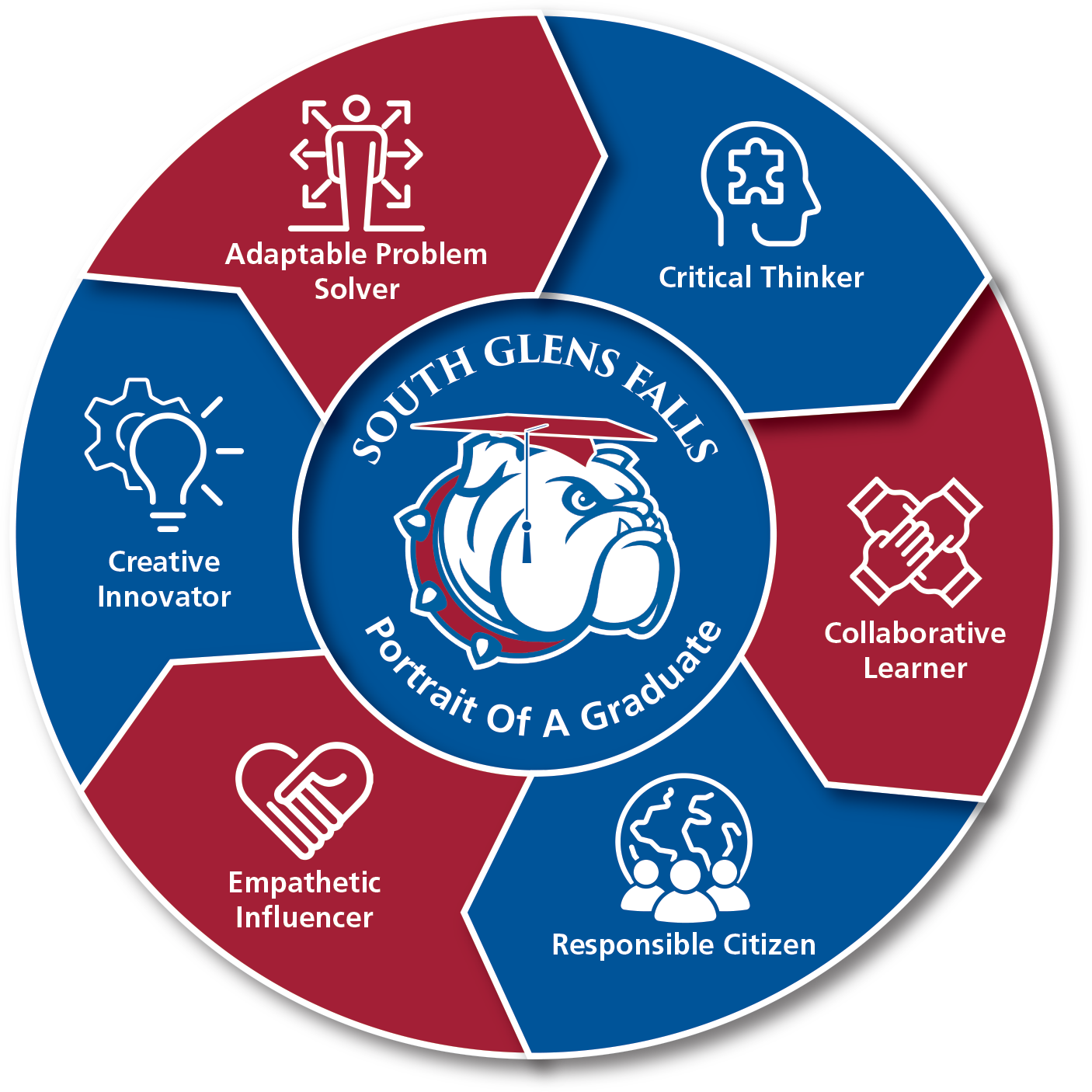GUIDING PRINCIPLES
The South Glens Falls Central School District Code of Character, Conduct, and Support is based on core values derived from our Portrait of a Bulldog for ensuring that our schools are safe, healthy, and supportive environments.
Guiding Principle: Restorative Practices
Student discipline, policies, and practices must be implemented in ways that are accountable and restorative. Students and families need to know that the school will provide interventions inside and outside the classroom that supports a restorative, rather than punitive, response. Students have the option to accept assigned consequences and fully participate in the interventions designed to address specific behaviors. These interventions require students to own the problem, reflect on the impact of their behavior on themselves and others, understand why the behavior was unacceptable or inappropriate, and identify what they can do differently next time, as well as to repair harm.
We need to be aware that the person whose actions we are attempting to correct must be in a place where they admit they were wrong and want to make amends or alter their behavior.
Examples of Restorative Practices
Affective Statements refers to the tone in which we speak to students to help us build relationships and show that we care about the students. For example, “I like the way you worked for the whole class period today,” is more effective than just saying “good job.”
Classroom Circles can be used as a response to poor choices and as a vehicle for discussion when creating respect and classroom norms. This should be used in the beginning of the school year so that students understand expectations and a positive classroom culture can be developed.
Restorative Conference is a formal response to conflict where the facilitator helps both parties explore what happened and who was affected. This can be done with a facilitator, teacher, and a student after a disruption to the learning environment has occurred.
Restorative Reflections is an exercise in which students complete a writing assignment and go through the restorative questions and steps as they try to reflect on their actions and make a better plan.
Restorative Harm Repair Circles are full-scale circles involving students, parents (guardians or caregivers), advocates and those affected. This is appropriate with students who acknowledge they have done harm and want to repair the relationship.
Conflict Coaching sessions are one-on-one meetings between individual parties and a trained restorative practice specialist. These sessions help the party gain perspective on the conflict, make decisions about next steps, as well as learn key communication skills, all while exploring position, emotions, needs and power in their conflicts.
Guiding Principle: Trauma Sensitivity
Awareness and intervention are essential when behaviors may be symptomatic of more serious problems that students are experiencing. It is important that school personnel be sensitive to issues that may influence the behavior of students and respond in a manner that is most supportive of their needs.
Appropriate disciplinary responses should emphasize prevention and effective intervention, prevent disruption to learning and promote a positive school culture.
Guiding Principle: Prosocial Behavior
Each SGFCSD school is expected to promote a positive school climate and culture that provides students with supports so that they can grow both academically and socially. Schools take a proactive role in nurturing students’ prosocial behavior by providing a range of positive behavioral supports as well as meaningful opportunities for social-emotional learning. Effective social-emotional learning helps students develop fundamental life skills. Examples include implementing a social emotional curriculum, classroom guidance lessons, and a variety of social skills groups.
Guiding Principle: Student Engagement
Engagement is integral to creating a positive school climate and culture that effectively fosters academic achievement and social-emotional growth. Providing students with multiple opportunities to participate in prosocial activities and develop a bond with caring, supportive adults, positively influences behavior.
